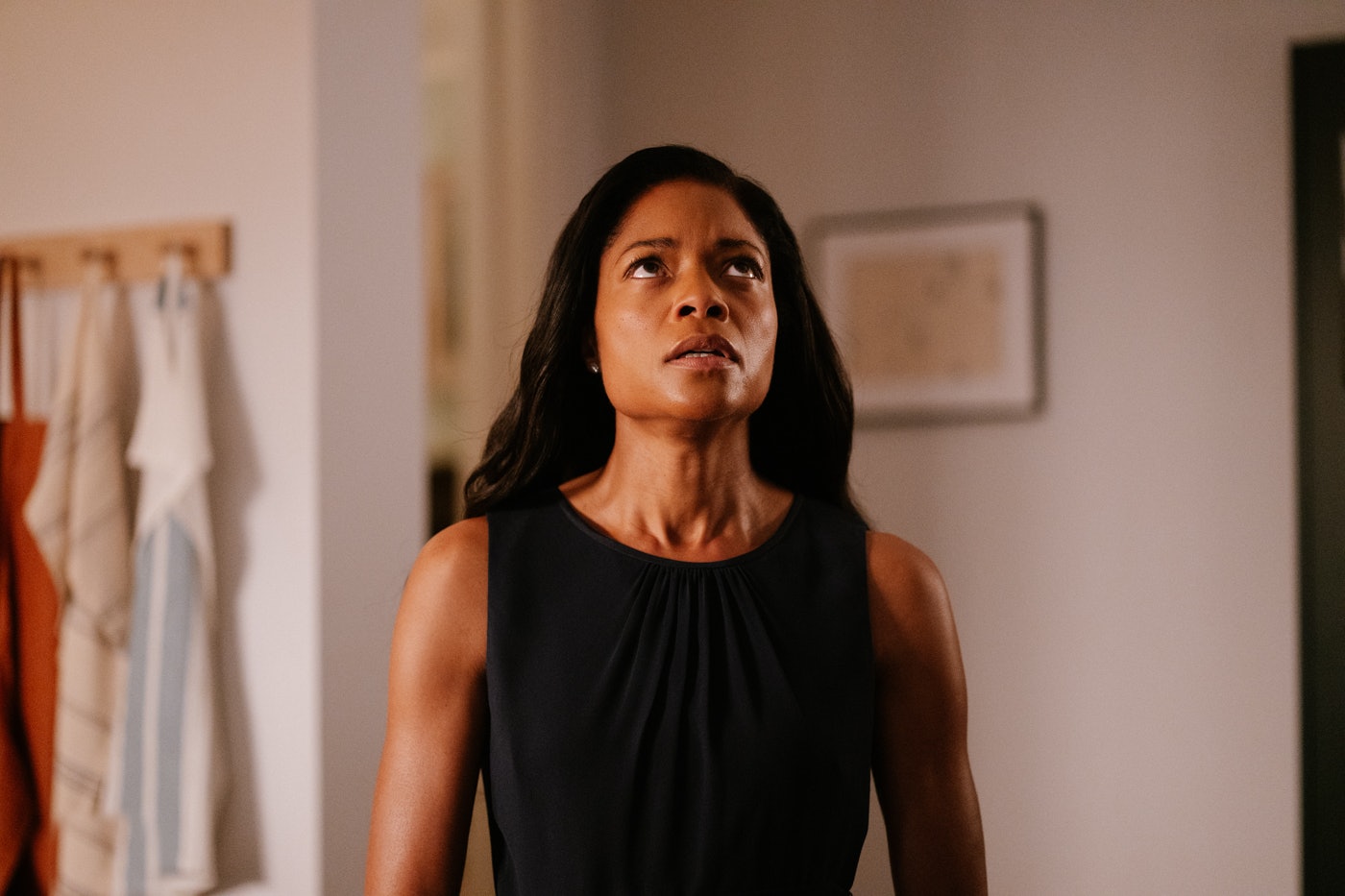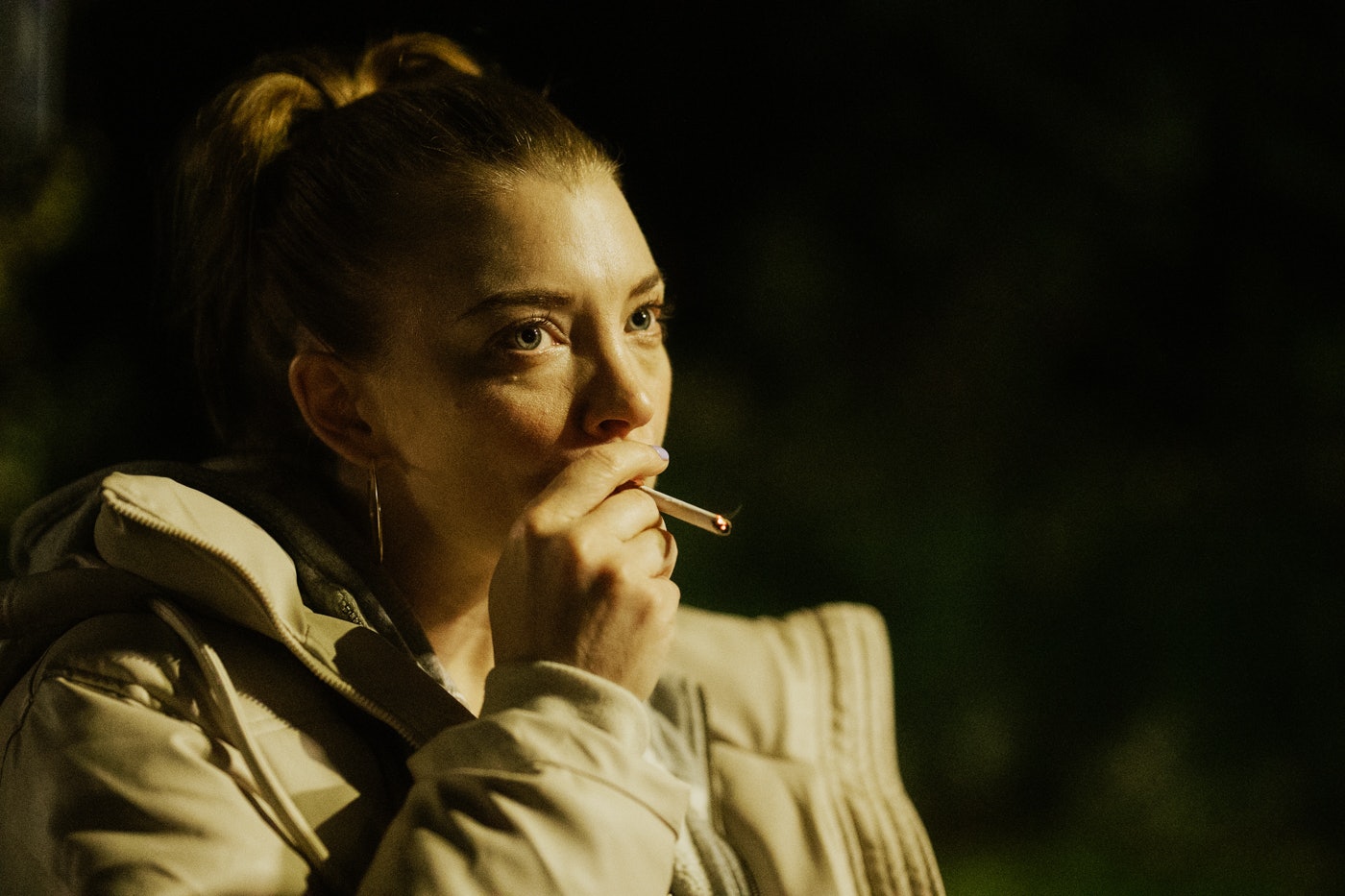
In today’s spoiler-filled landscape, virtually impossible to watch a new movie without already knowing what to expect. Huge twists are often spoiled as soon as a new film hits theaters, or even before, via a too-revealing trailer. But to read anything about The Wasp, a grim psychological thriller starring Naomie Harris and Natalie Dormer, before seeing it would do it a disservice. (Seriously, if you’re interested in seeing The Wasp, stop reading this review now and come back once you’ve watched the movie. I’ll wait.)
All you need to know upfront about the Guillem Morales-directed thriller is that Naomie Harris stars as Heather, a desperately unhappy housewife who reconnects with a former schoolmate, Carla (Natalie Dormer), after not seeing her for decades. But it’s more than just a school reunion — Heather has some darker, possibly illegal, plans in mind that she needs Carla’s help with. But that’s just the beginning of this disturbing chamber drama, which takes you on a surprisingly twisty narrative that gets more shocking with each turn.

Playwright Morgan Lloyd Malcolm pens the script based on her own 2015 play of the same name, which lends to the small, contained feeling of The Wasp — most of it takes place within one living room. But the film’s limited locations don’t detract from the unbearable tension that penetrates every frame.
Morales, whose work in Spanish thrillers like the Guillermo del Toro-produced Julia's Eyes gives him a keen understanding of the visual language of psychological horror, digs into the crumbling psyche of Heather with just a few key details: her sterile, white home; her blandly cruel husband (Dominic Allburn) who either ignores her or verbally abuses her; and the unseen wasp’s nest in her kitchen whose buzzing is driving her slowly insane.
Morales loves an intense close-up, which, coupled with The Wasp’s punctuating sound design, creates an unnerving effect that worms its way under your skin, as if Heather’s uneasy mindset is starting to infect you too. It’s a feeling encapsulated by a monologue that Heather gives, describing how a tarantula hawk, one of the wasps her husband has pinned on a wall, lays its parasitic eggs into its victims: “It burrows into it, feeding off its insides, but avoiding all its meatier organs so it’s still alive.” Throughout The Wasp, Heather is similarly an empty shell of a person, being eaten alive by something that only becomes clear once it’s too late.

The Wasp wouldn’t work so well if not for Harris’ central performance, which walks a razor’s edge between pitiful and mercurial. She’s terrific, a tsunami of repressed emotions and righteous anger that drives the film towards its shocking final act. Opposite Dormer, who plays against type as a crass, working-class woman backed into a corner, Harris becomes electric. Each scene between the two of them is breathtakingly tense, as Harris and Dormer circle each other like sharks that smell blood. It’s a masterclass in acting, elevated by Malcolm’s deceptively spare script.
To say anything more about The Wasp would ruin the surprise. There are plenty of mediocre movies that live by their twist, but The Wasp is less predicated on a single twist than the unexpected journey its multiple twists take you on. As each revelation unfolds, it draws you in further, until you’re hanging on to Harris and Dormer’s every word. The Wasp is the best kind of intimate, closed-room psychological thriller — one that makes it so you don’t even notice its walls, and how far they’ve closed in.







